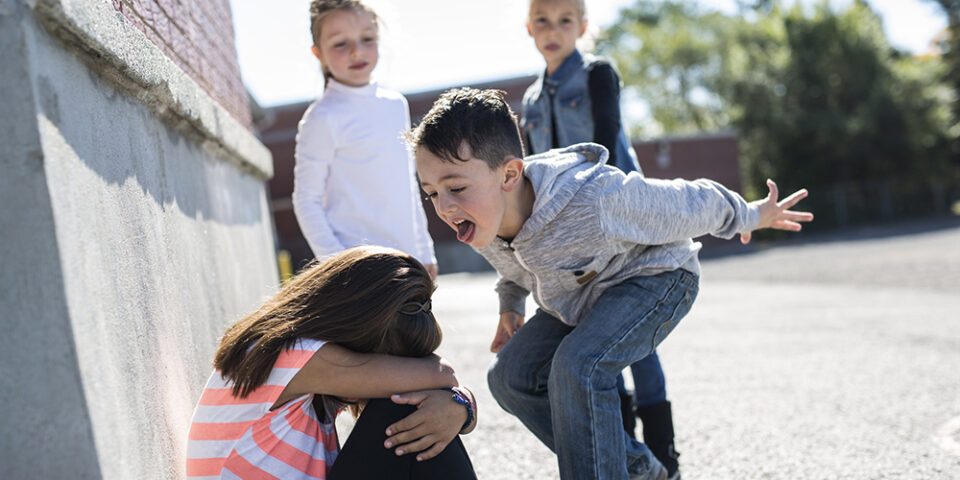What to do when your child is a bully
It’s news any parent would dread, learning that your child intentionally caused pain or humiliation to another kid. It’s a hard pill to swallow. You might even feel defensive about it. Psychiatrist Michael Sierra, MD, explained how parents can navigate this tricky situation and what to do when your child is a bully.
What are some warning signs your child might be a bully?
Sometimes, the news that your child is involved in bullying another can feel like it comes out of nowhere, but there can be warning signs of bullying behavior.
Some signs that could indicate your child is behaving like a bully include:
- Getting into physical or verbal fights.
- Having friends who are bullying.
- Being frequently sent to the principal’s office or receiving detentions.
- Finding items that don’t belong to them and not knowing where they came from.
What to do when your child is a bully
Take it seriously. “Usually, there’s a bit of denial at first,” Dr. Sierra said, “The first step for a parent would be to take a deep breath and take it seriously. Brushing it off or assuming that your child is just going through a phase can lead to bigger consequences down the line, especially when children get older.”
Communicate. Sit down and have a conversation with your child. Dr. Sierra suggested starting with, “I love you no matter what, but there are some behaviors that have to change, and I want to support you to help improve those behaviors.”
Discuss consequences. Help your child understand that there are consequences they’ll face at school, such as detention or suspension. Let them know you’re in support of those consequences and that you want them to do their best to learn from them.
Teach empathy. Younger kids often don’t realize that what they’re doing can cause pain to others. Explaining how their actions might be perceived is helpful because empathy is not always something that happens automatically. Also, teaching kids how to apologize for their actions is helpful.
Ask why they did what they did. Bullies often are trying to feel like they have more control or power, so identifying why they’re doing that can be helpful. Are they being bullied themselves?
“A very brave and strong thing to do would be to go and find people who are being targeted by bullies and be kind to them,” Dr. Sierra said. “Sit next to them and stand up to the bully instead of being a bully yourself. Go to the adults when there are safety concerns. Being part of the anti-bullying movement is more powerful than being a bully.”
Be a role model. “There is a power differential between adults and children and sometimes if we’re not careful, adults can unintentionally act like a bully to their child to get them to stop bullying, which continues the cycle,” Dr. Sierra said. “It’s important to try to role model empathy, respect and self-control.”
If you feel like you need a little more help, reach out to your child’s pediatrician and see if counseling might be appropriate.
Get kid-friendly care
Our pediatric experts can help your kids and teens be their healthiest.
Find a Pediatric Doctor

